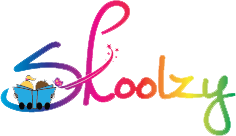10 Things Children Learn from Block Play: Building Skills Through Fun and Creativity
Posted by Skoolzy Team on
10 Things Children Learn from Block Play: Building Skills Through Fun and Creativity
 Block play is more than just fun—it’s a powerful tool for learning! From problem-solving to creativity, children develop essential skills while playing with blocks...
Block play is more than just fun—it’s a powerful tool for learning! From problem-solving to creativity, children develop essential skills while playing with blocks...
Why Block Play Is Essential for Child Development
According to the National Association for the Education of Young Children (NAEYC), block play is one of the most valuable activities for early childhood development...
The Power of Hands-On Learning
Blocks allow children to explore, experiment, and create in a tangible way...
How Block Play Supports Cognitive and Social Skills
Block play encourages problem-solving, collaboration, and creativity...
10 Skills Children Learn from Block Play
1. Problem-Solving
When children build with blocks, they face challenges like creating stable structures or figuring out how pieces interlock. This hands-on problem-solving experience nurtures critical thinking and helps young learners develop strategies to overcome obstacles. Encouraging experimentation and innovation, block play is a natural way to boost cognitive abilities.
2. Spatial Awareness
Understanding shapes, sizes, and how objects fit together is at the core of block play. As children manipulate blocks, they enhance their spatial awareness—a vital skill for later success in subjects like math and science. This intuitive grasp of space and form also supports everyday tasks, from navigating the environment to understanding geometry.
3. Creativity and Imagination
Block play offers endless possibilities. Whether constructing castles, cities, or futuristic robots, children are free to dream big. This creative freedom not only fuels imagination but also lays the groundwork for innovative thinking, turning simple play into a creative art form.
4. Fine Motor Skills
The act of picking up, stacking, and aligning blocks strengthens hand muscles and refines motor skills. Fine motor development is essential for tasks like writing, drawing, and using everyday tools. Through block play, children improve their dexterity and hand-eye coordination in an engaging, playful context.
5. Math and Science Concepts
Blocks introduce children to early math and science ideas. Counting, sorting by color or size, and balancing structures are all fundamental math skills wrapped in playful exploration. Simultaneously, basic physics concepts such as gravity and stability are experienced firsthand, making abstract ideas more tangible.
6. Language and Communication
As children describe their creations, share their ideas, and negotiate with playmates, they naturally develop language and communication skills. Block play becomes a storytelling medium, enhancing vocabulary and encouraging the articulation of thoughts and narratives in a fun, interactive way.
7. Social Skills and Teamwork
Collaboration is key in block play. Whether children work together on a large structure or share building materials, they learn important social skills like cooperation, sharing, and negotiation. These experiences lay the groundwork for successful teamwork and effective communication in social settings.
8. Persistence and Resilience
Not every tower stands tall on the first try. When structures topple, children learn to cope with failure and develop persistence by trying again. This resilience is a critical life skill, teaching kids that challenges are opportunities to learn and grow.
9. Planning and Organization
Every block play session involves a plan—deciding what to build and how to build it. This process encourages children to think ahead, organize their thoughts, and sequence steps logically. Such planning skills are invaluable as they transition to more structured learning environments later in life.
10. Self-Confidence
Completing a block structure, no matter how simple, gives children a powerful sense of achievement. This boost in self-confidence fosters a positive self-image and encourages them to take on new challenges, both in play and in learning.
Conclusion
Block play is much more than a pastime; it’s a comprehensive educational tool that nurtures a wide array of skills crucial for early childhood development. At Skoolzy, we celebrate these playful learning moments that empower children to explore, experiment, and excel. Encourage block play today and watch your child’s confidence and abilities soar!
Tips for Maximizing Block Play
- Provide a variety of block types (wooden, foam, magnetic) to keep play engaging...
- Join in the fun! Play alongside your child to model creativity and problem-solving...
- Ask open-ended questions like, “What are you building?” or “How can we make it taller?”...
FAQs About Block Play and Child Development
Q: At what age should children start playing with blocks?
A: Children can start with soft blocks as early as 6 months and progress to more complex sets by age 3...
Q: Are blocks only for solo play?
A: No! Blocks are great for group play, encouraging teamwork and social skills...
Q: What types of blocks are best?
A: Wooden blocks, foam blocks, and magnetic blocks all offer unique benefits...
Recommended Block Play Products
- Klikio Building Blocks: Durable and versatile for endless creativity...
- Skoolzy Wooden Alphabet Blocks: A classic choice for young builders...
Skoolzy Number Blocks & Counting Coins: Perfect for exploring Numbers and structures...









